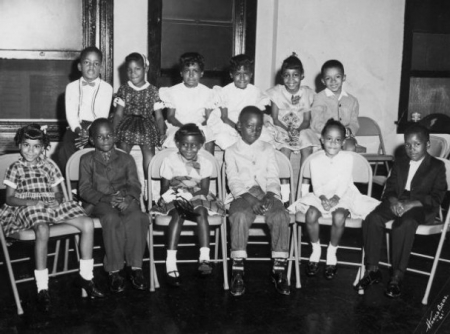In February, we highlight the contributions that African Americans have made to develop and advance our country and society. Each year during black history month, individuals are remembered and celebrated for their achievements; breaking barriers; and overcoming numerous obstacles. Despite advancements made, African Americans still confront inequities and face discrimination in employment, education, and other areas that affect quality of life. Perhaps the most important area to address to move forward is education – as the children of today prepare to become our leaders for tomorrow.
“Education is the most powerful weapon which you can use to change the world.”
– Nelson Mandela
To ensure a fairer and equitable model of education for black and brown students in America, we must all answer the call to intentionally dismantle the school-to-prison pipeline that damages, disables and devastates our nation’s youth. This transformative work is essential to our ultimate freedom and liberation.
Often, the first form of discrimination or state violence black and brown youth suffer is inequitable education and spatial segregation. [State Violence can be described as the policies and practices of repression and control used against marginalized groups by government or legal institutions. The damaging and debilitating effects of state violence can be seen in the courts, workplaces and/or schools.]
Black children and families have been violently indoctrinated into a system in America where learning means learning to stay in your place, devoid of question or complaint. In 1961, a group of courageous youth known as the Memphis 13 challenged this notion by becoming the first to integrate all white schools in Memphis, where historically learning environments and instructional resources are superior. While the precedent for students transitioning from schools that were under resourced and deemed unconstitutional was set in the 1960s, today, inequities in predominantly white and predominantly black schools and resulting achievement rates are still prevalent and striking cause for concern and action.Across America, urban schools are occupied with school resource officers and educators who sometimes confuse typical, adolescent misbehavior with criminality. Zero tolerance policies that lead to disproportionate & automatic suspensions as well as aerosol weapons such as Freeze + P and pepper spray invade hallways and classrooms.
The school-to-prison pipeline results in suspensions of black youth at three times the rate of their white peers, long hours in court opposed to the classroom, and a greater possibility of having a lifelong involvement with the criminal justice system. Throughout the late 1980’s and early 1990’s, the fear of the adolescent “superpredator” spurred law makers and school districts to adopt the “zero tolerance” rhetoric into their discipline structures, policies and procedures. By the year 2000, schools were suspending more than 3 million students per year.
In order to begin to dismantle the school-to-prison pipeline, we must demand discipline models, policies and practices that help, not hurt students, especially our most vulnerable.
Our children’s black and brown lives will not truly matter until our halls are free of aerosol weapons, order- maintenance policing in schools is dissolved, equitable funding reaches the classrooms and zero tolerance policies are no more.
This is the type of work that Stand for Children is engaged in year-round. Showing up, speaking out and advocating to ensure that all children, regardless of their background, graduate from high school prepared for, and with access to college or career training.
We stand in solidarity with our ancestors who learned to read and write while facing death, mutilation, and forced permanent separation from family.
We stand in solidarity with politicians of African descent who led the fight for universalized public education during the era of Reconstruction.We stand in solidarity with Septima Clark and others who developed Citizenship Schools.
We stand in solidarity with SNCC who birthed Freedom Schools during the 1964 Freedom Summer in Mississippi. In the spirit of educator, activist and youth organizer, Ella Baker:
“In order for us as poor and oppressed people to become part of a society that is meaningful, the system under which we now exist has to be radically changed… It means facing a system that does not lend its self to your needs and devising means by which you change that system.”
Access to a quality school is not equivalent to access to a quality or equitable education. Despite the fact quality schools are essential, they are only a fraction of the equation not the entire equation. We must and can do more to level the playing field and change the odds for current students and future generations – especially for those students who look like me.





